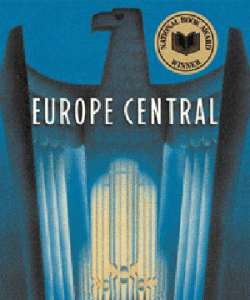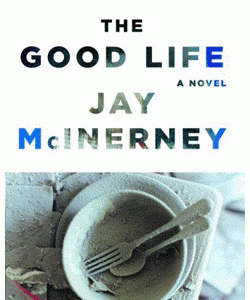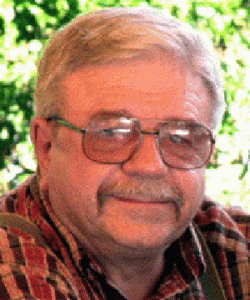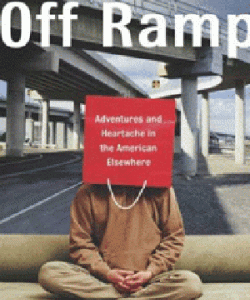From the Magazine
An Interview With Poet Bill Manhire
Bill Manhire is one of New Zealand’s most visible writers and certainly its most visible poet. The country’s inaugural poet laureate, Manhire is the author of more than ten books of poems, including Lifted, recently published by his long-time New Zealand publisher, Victoria University Press.
An Interview With Creative Nonfiction Writer William T. Vollmann

The author of fifteen books, including eight novels, three short story collections, a memoir, and a ten-volume treatise on the nature and ethics of violence, William T. Vollmann is often associated with his most controversial subjects—crack and prostitution among them. He is also characterized by a few signature stunts, such as firing a pistol during his readings and kidnapping a girl who had been sold into prostitution and turning her over to a relief agency while writing an article for Spin magazine.
An Interview With Fiction Writer Jay McInerney

Perhaps no single book details the excesses of the 1980s—in particular the debauchery of the New York City social scene—better than Jay McInerney’s Bright Lights, Big City (Vintage Books, 1984). The author’s commercially successful debut novel was adapted into a movie, starring Michael J. Fox and Keifer Sutherland, in 1988.
An Interview With Editor Lewis Turco

In the world of hip-hop, Lewis Turco would be considered an “Original Gangsta,” an “O.G.”—a title given to someone who started it all. In the more genteel business of poetry writing, however, Turco would be called an “Institution,” and what he started was nothing less than a renewed appreciation of poetic forms. Since its first edition in 1968, his reference book The Book of Forms has become a standard text for poets of all stripes. A cross between The Joy of Cooking and According to Hoyle for poets, Turco’s text remains a rarity: a reference book with personality. Turco’s lucid, empathetic entries on every form under the sun continue to serve many poets writing their first pantoums or settling drunken bets on the rhyme scheme of the rimas dissolutas (abcdef abcdef ghijlk ghijlk ..., if written in sestets).
An Interview With Fiction Writer JT Leroy
Eleven years ago, JT LeRoy was a teenager living on the streets of the San Francisco Bay Area, turning tricks and suffering from dissociative episodes. Today, he is a critically acclaimed author whose first two books, the novel Sarah (Bloomsbury, 2000) and the collection of short stories The Heart Is Deceitful Above All Things (Bloomsbury, 2001), have been translated into more than a dozen languages—most recently, Turkish. His novella, Harold’s End, illustrated by renowned painter Cherry Hood, with an introduction by Dave Eggers, was recently published by Last Gasp, an independent press in San Francisco.
An Interview With Creative Nonfiction Writer Augusten Burroughs
"I believe I control the world with my mind," Augusten Burroughs writes in the title essay of his new collection, Magical Thinking: True Stories. And who’s to say he doesn’t? Having survived a tumultuous childhood and an early career as an advertising copywriter while struggling with alcoholism, Burroughs—now a bestselling author—has indeed controlled his world. Magical Thinking is his fourth book in as many years, taking its place alongside Sellevision, his satirical novel about cable television’s home shopping networks, and his memoirs, Running With Scissors and Dry.
An Interview With Creative Nonfiction Writer Hank Stuever

For the past fourteen years, Hank Stuever, a two-time Pulitzer Prize finalist, has published his unique brand of creative nonfiction in the form of newspaper articles in the Albuquerque Tribune, Austin American-Statesman, and the Washington Post. The subjects of his articles—haunted waterbed stores, plastic lawn chairs, beauty pageants, and discount funeral homes among them—hardly seem fodder for probing essays on the American psyche. But what might fall into the realm of light comedy for many writers takes on a lyrical profundity in Stuever’s work.
An Interview With Poet Stephen Dunn
Next month, Norton will publish Stephen Dunn’s thirteenth book of poetry, The Insistence of Beauty, his second offering since his Different Hours won the 2001 Pulitzer Prize. In a writing career that has spanned three decades, Dunn has also been honored with the Academy Award for Literature from the American Academy of Arts & Letters, the James Wright Prize from the Mid-American Review, and the Levinson Award from Poetry magazine, as well as fellowships from the National Endowment for the Arts, the New Jersey State Council on the Arts, and the Guggenheim Foundation. He divides his time between Frostburg, Maryland, and Pomona, New Jersey, where he teaches creative writing at Richard Stockton College.
An Interview With Poet Richard Howard
Richard Howard is rarely at a loss for words. The poet, essayist, translator, editor, and professor is a tireless conversationalist who is always willing to supply a strong opinion on the many subjects to which he has applied his talents during a career that spans four decades.





